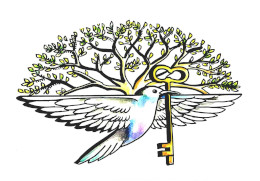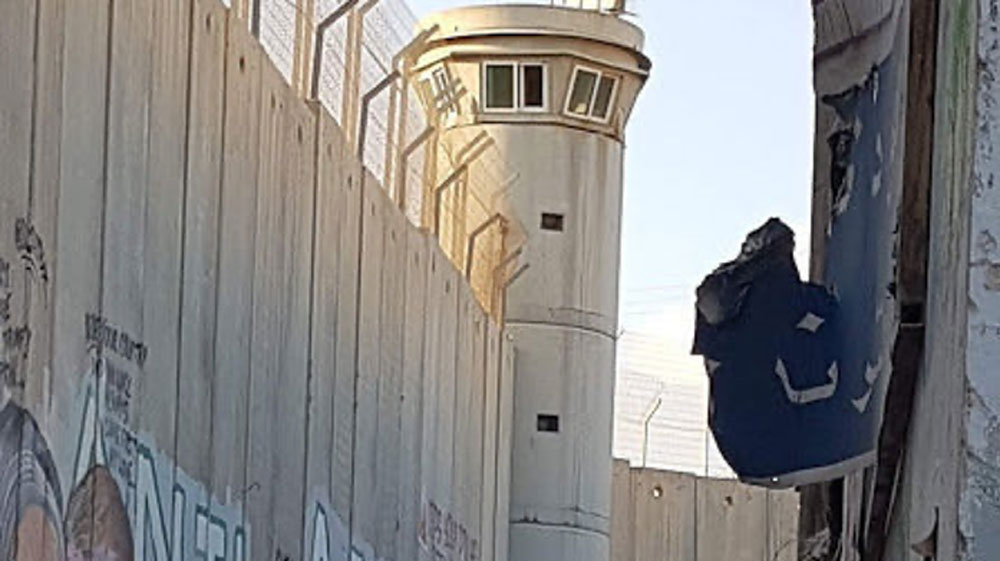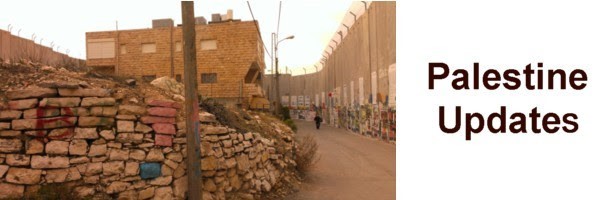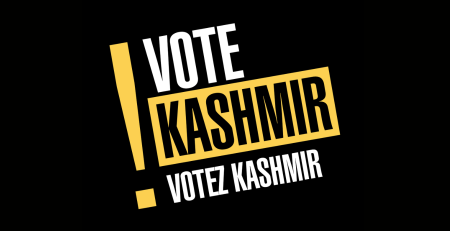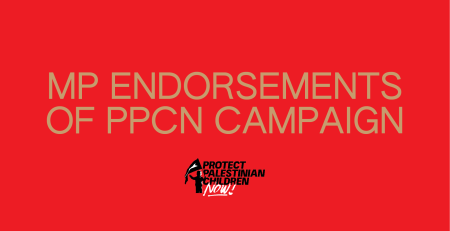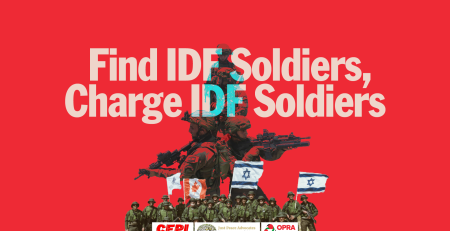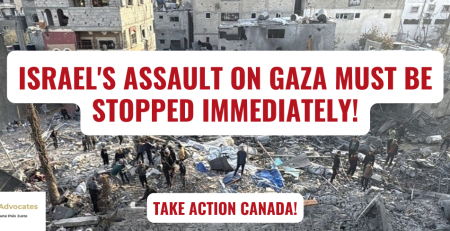Call to Christian Community in Canada
Read the June 2017 open letter from Christians in Palestine to the National Coalition of Christian Organizations in Palestine (NCCOP) to the World Council of Churches and the ecumenical movement. Click Here
The letter expressed the urgent situation of the people in Palestine, saying:
“We are on the verge of a catastrophic collapse. This could be our last chance to achieve a just peace”
The CALL to the Church Leadership in Canada to Answer the Call from Christians in Palestine
The National Coalition of Christian Organizations in Palestine issued an open letter to the World Council of Churches (WCC) in June 2017.
18 months later there has been NO response to this call in Canada.
Christians in Palestine said that they need the eccumenical movement more than ever: “We need brave women and men who are willing to stand in the forefront. This is no time for shallow diplomacy Christians.”
In Canada, NO response has been provided by the eccumenical Christian leadership through either the Canadian Council of Churches, the members of the Council or other Christian communities.
The June 2017 letter expressed the urgent situation of the people in Palestine: “We are on the verge of a catastrophic collapse,” the letter states. “This could be our last chance to achieve a just peace.”
November 29th is the International Day of Solidarity with the people of Palestine. In recognition we call the Canadian Christian community to take immediate and decisive action responding to the call from the Christian Palestinian community.
The Call
The Canadian Council of Churches, Canadian Christian denominations, congregations and organizations are called to make clear statements and take action that addresses the call of the Palestinian Christians which urged churches to:
- recognize Israel as an apartheid state;
- condemn the Balfour declaration as unjust;
- take a clear theological stand against any theology or Christian group that justifies the occupation and privileges one nation over the other based on ethnicity or a covenant;
- revisit and challenge religious dialogue partners;
- defend the right of Palestinian Christians to resist the occupation creatively and nonviolently support BDS;
- publicly and legally challenge Christian organizations that discredit our work and legitimacy; and
- lobby, advocate and develop active programs towards justice and peace for the people of Palestine
Learn to do right; seek justice. Defend the oppressed. (Isa. 1:17)
More background to the statement from the Christians in Palestine in making this call:
We are suffering from 100 years of injustice and oppression that were inflicted on the Palestinian people beginning with the unjust and unlawful Balfour declaration, intensified through the Nakba and the influx of refugees, followed by the Israeli occupation of the West Bank including East Jerusalem and Gaza and the fragmentation of our people and our land through policies of isolation and confiscation of land, as well as the building of Jewish-only settlements along with the Apartheid Wall.
We are still suffering because of one political declaration from a Western Empire, based on a twisted theological premise. Even some churches and few Christian leaders supported the establishment of the colonial state in our land, and totally ignored – even dehumanized – the nation, our people that had already existed here for centuries and paid the price for atrocities committed in Europe.
One hundred years later with thousands of lives lost, towns and villages razed from the face of the earth – though not our memory – millions of refugees, thousands of homes demolished and continued incarceration of prisoners, our Nakba goes on.
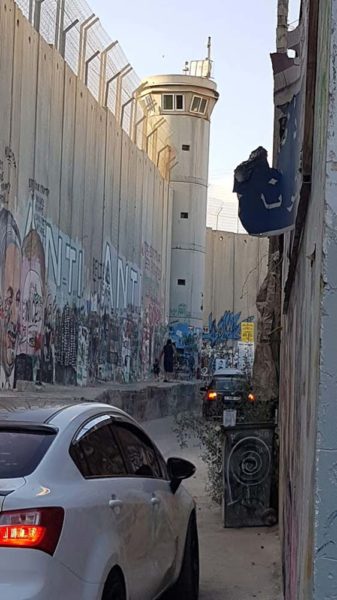
Hundred years later and there is still no justice in our land! Discrimination and inequality, military occupation and systematic oppression are the rule. Today, we stand in front of an impasse and we have reached a deadlock. Despite all the promises, endless summits, UN resolutions, religious and lay leader’s callings – Palestinians are still yearning for their freedom and independence, and seeking justice and equality. Humanly speaking – we have reached the “moment of impossible”, as Emeritus Latin Patriarch Sabbah said recently.
Could it be that we have reached this “impossible moment” because things were built from the very beginning – a hundred years ago – on an unjust premise? Should we expect that such an unjust declaration will create anything but strife and destruction?
While we are grateful for the ‘costly solidarity’ articulated in the Amman Call (2007) and exercised by many churches around the world, we are concerned that some churches have weakened their positions in the last ten years as a result of this manipulating pressure. Many still hide behind the cover of political neutrality, not wishing to offend their religious dialogue partners.
We are hard pressed on every side, but not crushed; perplexed, but not in despair; persecuted, but not abandoned; struck down, but not destroyed. (2 Cor. 4:8-9)
The United Church of Canada is undertaking a Task Force currently to consider their policy related to Palestine. The following letter was sent by Just Peace Advocates to the United Church of Canada:
United Church of Canada called to Stand with Its Partners in Palestine, Yes Solidarity is Costly

Just Peace Advocates/Mouvement Pour Une Paix Juste
March 8, 2020
Rev. Dr. Martha Ter Kuile, Chair
General Council Executive United Church of Canada Task Force on Palestine
Re: United Church of Canada Task Force on Palestine
Just Peace Advocates is pleased to provide your Task Force with comments. We hope these will be useful as you consider the policy statement of the United Church of Canada regarding Palestine.
We understand this policy review was prompted by the call made by the Palestinian Christian community in June 2017 as part of the 50 Years of Occupation call to the World Council of Churches and Christians around the world. In particular, the National Coalition of Christian Organizations in Palestine issued an open letter to the World Council of Churches (WCC) in June 2017.
We are glad to hear the United Church of Canada is having discussions with various communities and organizations as part of the Task Force. We trust you will also proactively reach out to the Palestinian community in both Canada and in Palestine.
The Multi-Faith Context
Just Peace Advocates appreciates the United Church of Canada in its multi-faith statement, Mending the World indicates its work is premised on
making common cause with all people of good will, whether they be of faith or not, for the creation of a world that is just, participatory and sustainable.
However, before we go further, we cannot help but note that the policy paper shared as part of the Task Force consultation uses very different language regarding its Jewish-Christian relationship than in describing its relationship with Muslims. We also note the policy paper is silent regarding the Palestinian Christians own call to fellow Christians.
We note that words such as dialogue, care, respect, gentleness, neighbours come from the Bearing Faithful Witness report along with references to Christians repenting for a long history of anti-Judaism and antisemitism. In reference to Muslims the paper simply mentions resisting evil and seeking justice as per the report That We May Know Each Other. Some people might see this as islamophobic.
We would encourage your Task Force to have more discussions with groups of faith and also secular groups within Canada who can speak clearly in regard to international law and human rights in relation to Palestine, from theological as well as legal, human rights and humanitarian perspectives.
The Palestinian Christian Call:
In June 2017, the Christians in Palestine said they need the ecumenical movement more than ever saying “We need brave women and men who are willing to stand in the forefront. This is no time for shallow diplomacy Christians.” See Appendix A.
We hope this would be the vision for the consultation and subsequent recommendations of your Task Force.
In Canada, to our knowledge, no response has been provided by the ecumenical Christian leadership through either the Canadian Council of Churches, the members of the Council or others Christian communities. Thus, we look to the United Church of Canada to lead the way in this regard, and work with other Christian denominations and organizations to follow suite with speaking truth to power.
The June 2017 letter expressed the urgent situation of the people in Palestine: “We are on the verge of a catastrophic collapse,” the letter states. “This could be our last chance to achieve a just peace.”
Silence From Canadian Christian Community
In November 2018, realizing that there had been silence from the Canadian Christian community, Just Peace Advocates made a call for the Canadian Christian community to take immediate and decisive action in response the call from the Christian Palestinian community.
This call was to the Canadian Council of Churches, Canadian Christian denominations, congregations and organizations asking them to make a clear statement and take action that addresses the 2017 call of the Palestinian Christians which urged churches to:
- recognize Israel as an apartheid state;
- condemn the Balfour declaration as unjust;
- take a clear theological stand against any theology or Christian group that justifies the occupation and privileges one nation over the other based on ethnicity or a covenant;
- revisit and challenge religious dialogue partners;
- defend the right of Palestinian Christians to resist the occupation creatively and nonviolently; support BDS.
- publicly and legally challenge Christian organizations that discredit our work and legitimacy
- lobby, advocate and develop active programs towards justice and peace for the people of Palestine
For the current United Church of Canada Task Force to recommend anything less than these requests from its brothers and sisters in Palestine would be appalling for those of us who stand with human rights and international law, and for those of us of the Abrahamic faiths who understand the ancient scriptures as a call to speak truth to power.
Palestinian Kairos 2009 Call and United Church of Canada
Just Peace Advocates urges as a first step that the Task Force to take steps to accept the Kairos document from 2009, a call from Palestinian Christians at that time. The United Church of Canada did not accept this statement. Although General Council 40 (2012) was considered to be a response. At this time the United Church of Canada did address some aspects of the Kairos document, and approved a limited boycott campaign related to a couple settlement products. However, very concerning was the resolution at General Council 40 which called for the right of return only if in doing “maintains the demographic integrity of Israel.” This statement was a long way from the United Church of Canada’s stance into the early 1970s supporting the full right of return of Palestinians under United Nations General Assembly Resolution 194 (1948). This statement essentially negated the rest of the resolution and was a shameful response to the Palestinian Kairos 2009 call.
However, we do note that the circulated United Church of Canada policy by your Task Force indicates “the Government of Canada and all international actors to recognise that the right of return of refugees is a basic human right that must also be accorded to Palestinian refugees.” We would ask your Task Force to be clear that the negating statement at General Council 40 indicating this right only if demographic integrity (aka Jewish majority) is maintained is not considered United Church of Canada policy, and that the General Council Executive adopt a statement denouncing this particular statement from General Council 40.
Just Peace Advocates urges your Task Force to use the 2009 Kairos document and the 2017 follow up call as your basis for United Church of Canada policy.
Public Declaration to End Agreement with B’nai Brith is Essential
As part of the general policy reconsideration it may be appropriate also for your Task Force to recommend the agreement from May 1973 with B’nai Brith and the United Church of Canada, and any formal or implied subsequent agreements with other groups such as Canadian Jewish Congress, be publicly declared as no longer being operative. It is important this is made clear by the United Church leadership in order to preclude the fear that it still governs ongoing issues faced by those within and outside church who are shut down and silenced as Palestinians and allies.
Costly Solidarity
Your Task Force to go back to the Amman 2007 call in your deliberation. In particular, we draw your attention to the statement from Christians in Palestine in their 2017 statement which said “while we are grateful for the ‘costly solidarity’ articulated in the Amman Call (2007) and exercised by many churches around the world, we are concerned that some churches have weakened their positions in the last ten years as a result of this manipulating pressure. Many still hide behind the cover of political neutrality, not wishing to offend their religious dialogue partners.”
We particularly remember that in 2017 in Bethlehem when Palestinian Christian made this call, the initial response of the then Moderator Jordan Cantwell who is on the current Task Force used the statement of it’s complicated and will take a lot of dialogue. Now we are three years later—and we hope that the United Church of Canada been able to sort through whatever “complications” they felt were associated with human rights and international law. We would urge you to speak clearly for Palestinian indigenous rights in your Task Force Recommendations without the concerns of being offensive to zionists within and outside the church.
The leadership of the United Church of Canada we trust in undertaking this Task Force is considering the recent wave of Israeli legislation, including the 2018 “nation state “law, as well as the 2020 publication of Trump’s Plan for the future of the area.
We also point out the apparent collapse of efforts towards the creation of a viable Palestinian state as contemplated by various two-state schemes, and urge the United Church of Canada to consider that hiding behind two-state status quo language is no longer sufficient for facing the facts on the ground at this time. We point you to this recent article by Just Peace Advocate co-founder and board member Jonathan Kuttab.
The Three Specific Points Raised by Your Task Force
We appreciate the opportunity to participate and comment on the reconsideration of the Policy statement of the United Church of Canada in regard to Palestine, and Just Peace Advocates particularly thinks it is important for you to reconsider your position on the three issues raised, namely the recognition of Israel as a Jewish state, the use of the term apartheid, and the attitude towards BDS.
- Recognition of Israel as a Jewish state
Just Peace Advocates encourages the United Church of Canada to recognize that the Jewish people in Israel have the right to exist. However, to be concerned about a state’s right to exist is counter to de-colonization and liberation theologically that we know the United Church of Canada to embrace. The recognition of Israel as a Jewish State also presents if not a theological problem, a philosophical problem with the idea of a religiously denominated state. The separation of church and state have been the basis of the reformation of Christianity over the last half-millennium, and seems to be the one method for ensuing the rights of all, particularly in a society that includes believers in different religions, and those of different ethnicities.
Israeli legislation has made it clear that such designation is indeed intended to denigrate from the rights of non-Jews in that state. According to the Israeli group Adalah there are over 70 pieces of legislation confirming such discrimination against non Jewish citizens of Israel, as a direct result of designating Israel as a specifically Jewish state. Beyond this the Nation-State which is Israeli Basic Law (like a state-constitution) openly proclaims not only that Israel is a Jewish state, and the state of all Jewish people, but that it is specifically NOT the state of all its citizens, and that ONLY the Jewish people have the right of self determination in the state of Israel. Palestinians today constitute half of the people living under Israel’s rule. Over 20% of its own citizens are also non-Jewish Palestinians. How a state wants to be recognized as “Jewish” without discriminating against those is difficult to understand.
As an openly Jewish state, public lands, institutions and resources, important positions in government and industry, the ability to immigrate or visit the country, where a person may live, and what opportunities the state provides its citizens are openly determined by whether one is Jewish or not. Surely the United Church of Canada would not want to be supporting this stance?
Absent of some clear evidence that the state can provide true equality to non-Jews, all expressions of recognition of its identity as a Jewish state constitute an open invitation for racism, discrimination and inequality towards non-Jews within its borders. Just Peace Advocates feels it is very problematic to include such reference as the right of Israel to exist as a Jewish-state as part of the policy of the United Church of Canada—this is totally unacceptable to Palestinians and seems to contribute to systematic inequality and discrimination against them.
- Use of the term apartheid
“Apartheid” is now a well-defined legal concept that refers to a system of practices in a legally and legislatively sanctioned system, under which one group has policies and practices of segregation, separation and discrimination for the purpose of establishing or maintaining domination of one group against another and such policies include legislative measures designed to divide the population by the creation of separate reserves and ghettos for the members of one racial group or groups . This crime is prohibited under Protocol 1 of the Geneva Convention of 1977, and is designated as a crime under Article 7 of the Rome Statute of the International Criminal Court. It is also prohibited under the International Convention on the Suppression and Punishment of the Crime of apartheid adopted by the UN in 1973.
The three elements for such a crime are:
- creating a regime for the domination by one group over another group,
- by the creation of a separate and unequal system of governance to the detriment of the victim group and its members, and
- committing various violations of the rights of the victim group including enslavement, forced transfer of the population, deportation, torture , persecution and other violations against any identifiable group based on political, national , ethnic cultural or gender grounds.
In the West Bank of Palestine today two distinct groups of civilians exist under the rule and control of Israel: the indigenous Palestinian population and the Jewish settlers. Apart from the blatant illegality of these Jewish settlements under international law, and the fact that these settlements are largely established on lands stolen from the Palestinians, the system of governance in the West Bank of the oPt itself clearly fits the legal definition of apartheid:
- Jewish settlers live in separate areas, where Jews live in all-Jewish areas where Palestinian, including Israeli Palestinians citizens of Israel are not allowed to live and West Bank Palestinians cannot enter without permission. These areas are continuously expanding leaving Palestinians to live in limited ghettoes and reserves.
- Jews and Palestinian live under separate legal systems, with Palestinian subject to military law, as well as Palestinian legislation, while settlers are only subject to Israeli civil law. They cannot be stopped by Palestinian police, nor brought before Palestinian civil courts . They also cannot be stopped by Israeli soldiers or brought before Israeli military courts, which have no jurisdictions over Jews, but can only be stopped, if at all by civilian Israeli police ( if they are around in the West Bank) to be brought before Israeli civilian courts in Israel.
- A separate system of police, health services, social welfare, public bus services, education, and municipal governance applies to each group, all of which are clearly favorable to the Jewish settlers. Both the systems themselves, and the consequences of applying them contribute to gross and systematic inequalities and unfairness and are enforced through oppressive coercive measures.
- A separate system of roads connects the Jewish settlements to each other and to Israel. most of these roads are prohibited to Palestinian whose areas are surrounded by Walls, cement blockades, and checkpoints, as well as “gates” controlling access.
The system is not only based on separation, but such separation is legally and legislatively mandated, and enforced by an oppressive system of control, and domination, including collective punishment, torture and imprisonment, administrative detention, deportations restrictions, and heavy-handed enforcement aimed at domination and control of the Palestinian population in favor and to the advantage of the Jewish settlers and the state of Israel. The Israeli army of occupation which controls all areas of lives for Palestinian has no authority over Jewish settlers but must intervene on their behalf if any tensions arise between the two groups.
If one does not believe the elements of this crime exists, then a discussion over this issue may be undertaken, and proper fact-finding may be called for. However, a wealth of information exists from Palestinian, Israeli and international human rights organizations to show that this is indeed the state of affairs. The maps put forth by the latest Trump Plan, which mirrors the existing realities and plans to confirm them permanently, show a clear pattern of Bantustan-like enclaves for Palestinians, swallowed up in an overwhelming Israeli control as was noted by the President of South Africa, when he reviewed the said Plan.
If anything approaches a system of injustice creating suffering, it is this apartheid system in the West Bank. To call it by its proper name is the least that the United Church of Canada can do. The insistence of the United Church of Canada over the years to say that using “apartheid” is not helpful speaks of the zionist influences within and on the United Church of Canada, and leaves the United Church of Canada not only out of step with international law and human rights, but is counter to the gospel which speaks of equality for all people.
To recognize that such language is uncomfortable to the oppressor, who threaten to end conversations if the terms is even used, is to acknowledge the role of such language as a prophetic witness. Surely it cannot be used as an excuse to avoid speaking truth, just because the powerful would find it objectionable! How else do you address injustice if you cannot even call it by its proper name? To say that use of this terms also weakens elements calling for negotiated agreements, or hampers possibilities for a negotiated peace is to confirm the status quo, and demand that Palestinians operate and negotiate only within the oppressive system that has been imposed upon them. The publication of Trump’s so-called Peace Plan confirms this fact very clearly. Just Peace Advocates standing with Palestinian partners calls on the United Church of Canada to not to fall into this trap.
- Boycotts, Divestment, and Sanctions (BDS).
The United Church of Canada has indicated it accepts the principles behind BDS as proper nonviolent tactics for addressing and combating the systematic injustices involved in the Israeli occupation and as legitimate tools for influencing Israeli policies. The objections against BDS that result in the United Church of Canada limiting its stance to some cherry-picked labeling and in the past boycott of settlement good seems to be very misplaced.
The grassroots membership in 2012, but especially in 2015 at General Council 41 called clearly for divestment of church funds—but to date no divestment has occurred at any court of the church. The divestment call is mentioned in the policy paper that accompanied this consultation, so are we to assume this is still policy of the United Church of Canada? If so then why have repeated calls by groups such as United Network for Justice and Peace for Palestine & Israel, individual members of the United Church of Canada, partners from Palestine, and others who care about Palestine here in Canada, to at least report back on the resolutions related to divestment from Israel as it related to illegal settlements and military occupation been ignored? It would seem sinc it is more than five years later, that these have been completely shelved perhaps? This divestment was not even calling for the right of return nor equality for people in the state known as Israel. The resolution was simply asking for the church to act as the grassroots had directed regarding divesting from companies that are actively involved in illegal settlements and military occupation.
To not provide even a response to the resolutions makes one believe that there is some unspoken but firm commitment by the United Church of Canada to ensure that resolutions related to Palestine do not need to be implemented. Is it possible that such an assurance as indicated in documents available in several archives was indeed given to B’nai Brith in 1973 when the “Peace Accord” agreement was signed between the United Church of Canada and B’nai Brith and that such an understanding continues to direct the policies of the UCC almost a half century later?
The nature of the BDS movement has always been that it is highly decentralized and leaves to local groups to decide on the specific campaigns or activities they choose to peruse based on their local situations. As Israel continues to erase the Green Line, undermine the two-state solution, and annex more territories and solidify and confirm their forced integration into Israel, and passes laws prohibiting distinctions between settlements and Israel, and refuses to label products of the settlements clearly, the distinctions between addressing settlement Israeli products, and investments, and those of Israel itself become harder and harder to maintain. United Church of Canada policies need to acknowledge this reality and avoid being intimidated by the current efforts to demonize and criminalize the BDS movement and its supporters.
For the United Church of Canada further suggests that the BDS “as a whole involves too broad a spectrum of participants with significantly varied and sometimes unacceptable goals” is to misrepresent the historic nonviolent tactics of boycott, divestment and sanctions. The policy paper for consultation says “for example, seeking to boycott all Israeli products and activities leaves the impression that the existence of Israel itself is challenged. [And] similarly, a boycott of Israeli academics undercuts a segment of Israeli society widely known for its opposition to government policies; such a policy, therefore, appears counterproductive.”
The essence of BDS is to provide an alternative nonviolent method pressuring Israel which has so far successfully defied international law and international values. It also provides churches, and others with a means of promoting their values, when their own governments fail to pressure Israel into ending its occupation policies, providing equality to all citizens, and to upholding the universal right of return of refugees. Boycotts and divestment have been used against other countries, and their rulers have also had to face sanctions over human rights violations. Israel should not be exempt from such pressures and consequences. In Canada at any time there are at least 20 countries being sanctioned under the United Nations Act and the Emergency Economic Measures Act. In this sense, Israel is not unfairly singled out, but rather, Israel is being unfairly exempted from the universal requirements we impose on other countries.
With the United Church of Canada’s most recent re-engagement with the Canadian government to call for anything less than sanctions is missing the leadership that is required at this time. Beyond the accountability as a High Contracting Party (signatory) of the Fourth Geneva Convention that is required under Article 1 to do whatever is required to ensure the Convention is upheld in all circumstance, the Canadian government also is required under our own Canadian law, the Economic Emergency Measures Act, to put in place sanctions when a country systemically violates human rights. Just Peace Advocates would call the Task Force to stand with the Al Haq’s Gaza2020 call that sanctions be put in place until at least the blockade of Gaza is ended. The BDS movement is key not just until an occupation is ended, but until equal rights are enshrined in law, and the right of return granted in 1948 by the UNGA Resolution 194 is realized. We hope that your Task Force will listen to our Palestinian partners 2017 call, and that you will recommend the United Church of Canada show clear leadership for boycott, divestment and sanctions related to end of occupation, ensure equal rights and release the right of return.
Other Issues
In addition to the three major issues noted above, we note the following
- General Council 40 (2012) called for “challenging Christian beliefs that theologically justify the occupation and Israel’s possession of a greater Israel that includes the West Bank, East Jerusalem, and Gaza; and requested that the Theology and Inter-Church Inter-Faith Committee explore the implications of theologies and beliefs that support the occupation.” We would ask specifically what the status of this theological work is currently?
- We noted that the United Church of Canada Policy statement circulated, while stating it does not wish to address specific acts of violence by either party, none the less specifically talks about Palestinian suicide bombing, which have practically ceased in the last few years, but fails to address the ongoing extrajudicial killings of unarmed Palestinians, including by snipers on the Gaza border. The siege of Gaza and the horrible humanitarian conditions there, we respectfully suggest, warrants specific mention in the United Church of Canada policy statement, to be relevant in 2020, and in this regard we direct you to the Just Peace Advocates campaign in partnership with Al Haq, Gaza 2020. You may also wish to address the Trump Plan, which specifically negates international law, confirms and legalizes settlements and annexation, and clearly undermines any possibility for a viable two-state solution.
- Comments around supporting financial investments, economic ethical investment only if peaceful pursuits by Palestine leaves a very mixed message. It is important that you consider the challenges of investment under occupation and active colonization; it is the barriers that are the issue. Just Peace Advocates strongly urges the United Church of Canada to carefully consider research and writings by Dr. Jeremy Wildeman and colleagues including the following:
Persistent failure: World Bank policies for the oPT
Can Oslo’s Failed Aid Model Be Laid to Rest?
Why cutting US aid will help Palestinians – and peace
We suggest you reach out to Dr. Wildeman to ask him to provide feedback to your consultation including related to the policies related to investment, economic development and aid.
We also would ask you to consider the approved United Church of Canada General Council resolutions since 1948 and consider their current status, and how this informs the recommendations your Task Force will be making. We would be prepared should you find it helpful to provide a full summary of these resolutions.
We are pleased to provide this input to the Task Force and would welcome the opportunity to meet with the Task Force and United Church of Canada leadership to discuss further.
Sincerely,
Karen Rodman, Voluntary Executive Director on behalf of Just Peace Advocates
Cc:
The Right Reverend Dr. Richard Bott, Moderator, United Church of Canada
Nora Sanders, General Secretary, United Church of Canada;
Reverend Michael Blair, Executive Minister, Church in Mission, United Church of Canada; Member of Task Force
Rev. Brenna Baker, Member of Task Force
Right Rev. Jordan Cantwell, Member of Task Force
Rev. Jim Cairney, Member of Task Force
Wendy Gichuru, Program Coordinator, Africa and Middle East Partnership Program, United Church of Canada
Appendix A
Palestinian Christians call World Council of Churches to ‘costly solidarity’
Palestine Updates 5o
Palestinian Christians call World Council of Churches
and the ecumenical movement to ‘costly solidarity’
in this seemingly ‘impossible moment”
“We are hard pressed on every side, but not crushed; perplexed, but not in despair; persecuted, but not abandoned; struck down, but not destroyed. (2 Cor. 4:8-9)”
Learn to do right; seek justice. Defend the oppressed. (Isa. 1:17)
Background
As we meet this month in Bethlehem in occupied Palestine, we are still suffering from 100 years of injustice and oppression that were inflicted on the Palestinian people beginning with the unjust and unlawful Balfour declaration, intensified through the Nakba and the influx of refugees, followed by the Israeli occupation of the West Bank including East Jerusalem and Gaza and the fragmentation of our people and our land through policies of isolation and confiscation of land, and the building of Jewish-only settlements and the Apartheid Wall.
We are still suffering because of one political declaration from a Western Empire, based on a twisted theological premise. Even some churches and few Christian leaders supported the establishment of the colonial state in our land, and totally ignored – even dehumanized – the nation, our people that had already existed here for centuries and paid the price for atrocities committed in Europe.
Hundred years later with thousands of lives lost, towns and villages razed from the face of the earth – though not our memory –, millions of refugees, thousands of homes demolished and continued incarceration of prisoners, our Nakba goes on. Hundred years later and there is still no justice in our land! Discrimination and inequality, military occupation and systematic oppression are the rule. Today, we stand in front of an impasse and we have reached a deadlock.
Despite all the promises, endless summits, UN resolutions, religious and lay leader’s callings – Palestinians are still yearning for their freedom and independence, and seeking justice and equality. Humanly speaking – we have reached the “moment of impossible”, as Emeritus Latin Patriarch Sabbah said recently.
Could it be that we have reached this “impossible moment” because things were built from the very beginning – a hundred years ago – on an unjust premise? Should we expect that such an unjust declaration will create anything but strife and destruction?
Today is also an opportunity to remember the Amman Call which was proclaimed ten years ago. We are thankful to those who stood with us back then in costly solidarity; those who stood for truth and justice. We are also concerned that ten years later the situation has been worsening on on the ground and still deteriorating. Like other initiatives advocating end of occupation, the Amman Call did not achieve its goals in building and achieving just peace and we must ask ourselves today – why?
We are also concerned by Israel’s systemic assault on Palestinian creative resistance, and on our partners worldwide who use this method to pressure Israel to end the occupation. Many new laws were issued in Israel and around the world to oppose this creative non-violent resistance unlawfully, and to stop all effort towards peace. Not only is this an attack on the freedom of conscience and speech but it is also an assault on our right and duty to resist evil with good. Israel is even now trying to prevent pilgrims from visiting Bethlehem – the city of Emmanuel!
While we are grateful for the ‘costly solidarity’ articulated in the Amman Call and exercised by many churches around the world, we are concerned that some churches have weakened their positions in the last ten years as a result of this manipulating pressure. Many still hide behind the cover of political neutrality, not wishing to offend their religious dialogue partners.
Finally, we meet in an environment of religious wars and persecution in our region. Religious extremism is on the rise, and religious minorities have paid a heavy and painful price. We thank you for your efforts towards the refugees and towards ending the conflicts in our region. We also thank you for your support of persecuted Christians in places like Iraq and Syria.
Our Call
“God blesses those who hunger and thirst for justice, for they will be satisfied.” (Matthew 5:6)
“Blessed are those who are persecuted because of righteousness (Justice), for theirs is the kingdom of heaven. Blessed are you when people insult you, persecute you and falsely say all kinds of evil against you because of me”. (Matthew 5:10-11)
As we stand in front of this “impossible moment”, it gives us no pleasure to say that “we told you so” eight years ago when we declared the moment as a Kairos moment! We stand facing the impossible, but we have not lost hope, since as followers of the Risen One, we are the people of hope. However, we need you and we need you now more than ever. We need your costly solidarity. We need brave women and men who are willing to stand in the forefront. This is no time for shallow diplomacy Christians. We urge you to hear our call and adopt the following:
- That you call things as they are: recognize Israel as an apartheid state in terms of international law and in agreement of what a person like Desmond Tutu said and as the UN ESCWA report said: “Israel is guilty of imposing an apartheid regime on the Palestinian people”. We are disturbed by the fact that States and churches are dealing with Israel as if the situation were normal, ignoring the reality of occupation, discrimination and daily death in the land. Just as churches united to end apartheid in South Africa and whereby the WCC played a courageous and pivotal prophetic and leadership role, we expect you to do the same!
- That you unequivocally condemn the Balfour declaration as unjust, and that you demand from the UK that it asks forgiveness from the Palestinian people and compensates for the losses. We ask that churches and Christians to support the Palestinians in their request for justice. It was his infamous declaration, after all that laid the ground for the concept of an ethno-religious state – the very same thing our region is suffering today.
- That you take a clear and the strongest theological stand against any theology or Christian group that justifies the occupation and privileges one nation over the other based on ethnicity or a covenant. We ask that you adopt and live the theology suggested by Kairos Palestine and that you organize conferences to bring awareness towards this end.
- That you take a stand against religious extremism and against any attempt to create a religious state in our land or region. We ask that you support us in combating the foundations of extremism and that you seek our council when acting against religious extremism so that you do not jeopardize and harm our standing here.
- That you revisit and challenge your religious dialogue partners, and that you are willing to even withdraw from the partnership if needed – if the occupation and injustices in Palestine and Israel are not challenged.
- That you lead campaigns for church leaders and pilgrims to visit Bethlehem and other Palestinian cities on this side of the wall in cooperation with Palestinian tourist and pilgrimage agencies, in response to recent attempts by Israel. We ask that you publicly challenge any attempt by Israel or other Christians that discourage pilgrims from visiting Palestinian places.
- That you defend our right and duty to resist the occupation creatively and nonviolently. We ask that you speak in support of economic measures that pressure Israel to stop the occupation and go further to support sport, cultural and academic measures against Israel until it complies with international law and UN resolutions urging the ending of its occupation, Apartheid and discriminations, and accepts refugees to return to their home land and properties. This is our last peaceful resort. In response to Israel’s war on BDS, we ask that you intensify that measures.
- That you create lobby groups in defense of Palestinian Christians. We ask that you publicly and legally challenge Christian organizations that discredit our work and legitimacy.
- We therefore propose as a matter of the greatest urgency that you create a strategic program within WCC similar to the Program “To Combat Racism” to lead efforts to lobby, advocate and develop active programs towards justice and peace in Palestine and Israel and work on maintaining the presence of the Palestinian Christians through supporting their organizations, church work and peaceful efforts.
As faithful witnesses, we acknowledge, affirm and continue the long standing prophetic tradition, especially the one started by the Amman Call and articulated in the Kairos Palestine document. We fully grasp the pressure church leaders are facing here and abroad not to speak the truth, and it is because of this that we are raising this call.
Things are beyond urgent. We are on the verge of a catastrophic collapse. The current status-quo is unsustainable. This could be our last chance to achieve a just peace. As a Palestinian Christian community, this could be our last opportunity to save the Christian presence in this land. Our only hope as Christians comes from the fact that in Jerusalem, the city of God, and our city, there is an empty tomb, and Jesus Christ who triumphed over death and sin, brought to us and to all humanity, new life.
We are hard pressed on every side, but not crushed; perplexed, but not in despair; persecuted, but not abandoned; struck down, but not destroyed. (2 Cor. 4:8-9)
12 June 2017
Signatories
Jerusalem
Arab Catholic Scouts Group
Arab Orthodox Society – Jerusalem
Caritas- Jerusalem
Department of Service to Palestinian Refugees- Middle East Council of Churches
Greek Catholic Sayedat AlBishara Association
International Christian Committee
Laity Committee in the Holy Land
National Christian Association
Pontifical Mission Palestine
SABEEL – Ecumenical Liberation Theology Center
Seeds of Better life
Union of Arab Orthodox Club – Jerusalem
Young Men’s Christian Association –YMCA
Young Women’s Christian Association –YWCA
Gaza
NECC office
Bethlehem (NCOB)Network of Christian Organizations in Bethlehem
The East Jerusalem YMCA /Beit Sahour Branch
The Arab Educational Institute,
Holy Land Trust, Bethlehem
Wi’am Center, Bethlehem
Saint Afram Assyrian Society,
Holy Land Christians Ecumenical Foundation, Bethlehem
Joint Advocacy Initiative (JAI)
Arab Orthodox Club, Beit Sahour
Arab Orthodox Club, Beit Jala
Arab Orthodox Club, Bethlehem
The Arab Orthodox Charitable Society, Beit Sahour
Bethlehem Bible College
Siraj Center for Holy Land Studies
Alternative Tourism Group, ATG, Beit Sahour
Senior Citizen Charitable Society
Environmental educational Center, Beit Jala
Saint Vincent Charitable Society, Beit Jala
Shepherds’ Children Society, Beit Sahour
KAIROS PALESTINE
